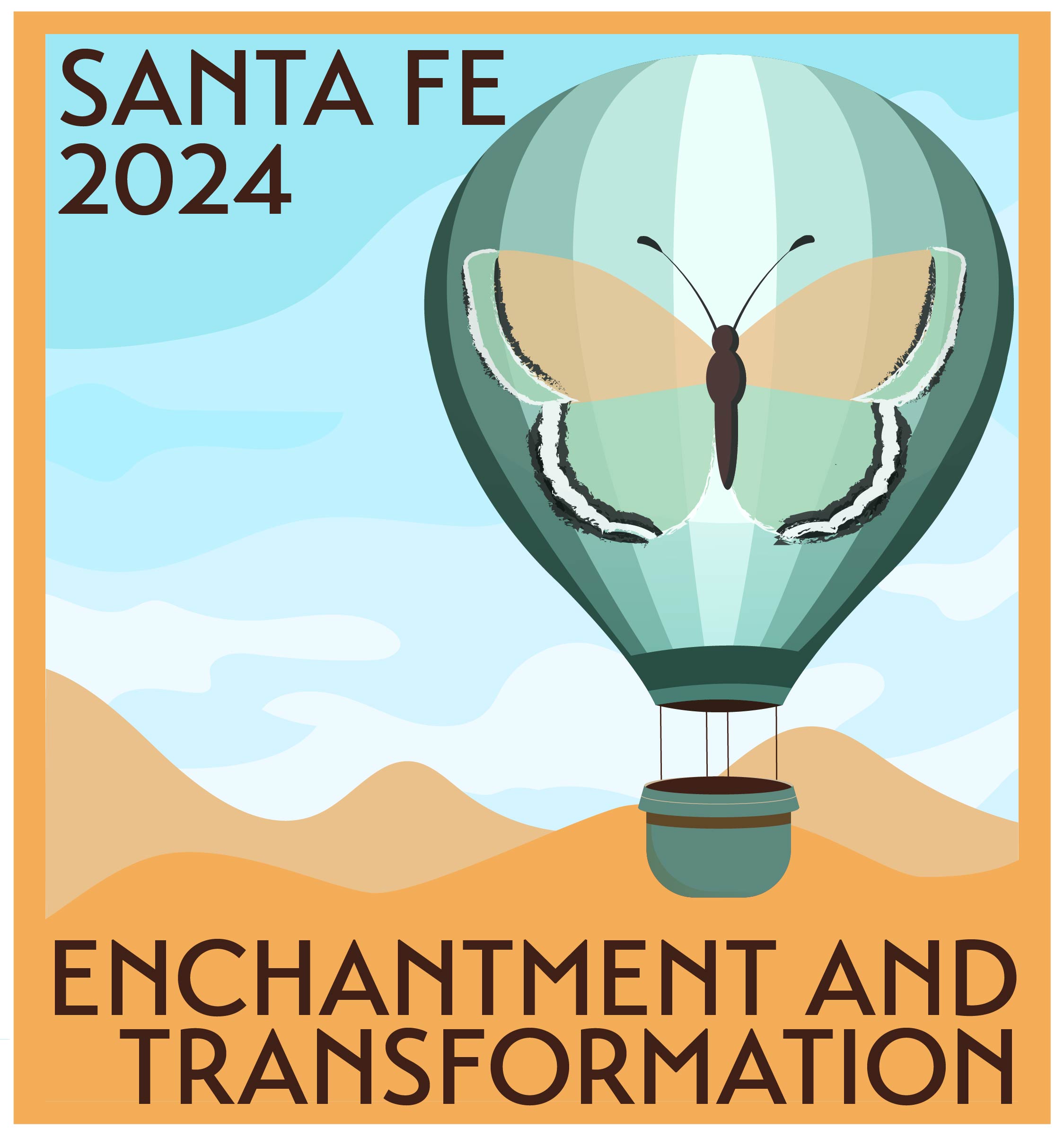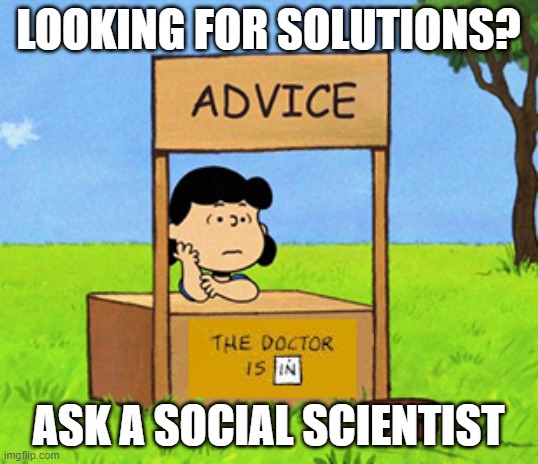An account is required to join the Society, renew annual memberships online, register for the Annual Meeting, and access the journals Practicing Anthropology and Human Organization
- Hello Guest!|Log In | Register
 From the 2024 Annual Meeting Program Chair: On the Way to Santa Fe
From the 2024 Annual Meeting Program Chair: On the Way to Santa Fe
A.J. Faas
Professor of Anthropology
San José State University
I’ve got a feeling. As I type these words on October 19, I have just received the latest updates on registration numbers and session and paper submissions for the 2024 annual meeting in Santa Fe. Registration numbers are appreciably above where they were on this date in the last few years. For months I’ve been happily receiving at least a couple of emails every day updating me on sessions in development. Now, all at once, a truly stellar program is coming into view. Following my contribution to the summer issue of SfAA News, I’d like to share a few more examples of what will make this Annual Meeting one to remember.
First, I am sure many of you have heard the sad news about the passing of two beloved members of the SfAA community, Heather Lazrus and Paul Doughty. I count myself as incredibly fortunate to have known them both. Heather was a transformative leader in environmental anthropology, known for co-founding and co-leading The Rising Voices Center for Indigenous and Earth Sciences at the National Center for Atmospheric Research and for her collaborations and mentorship with students, scholars, practitioners, and “pracademics” around the world. Her friends and colleagues will host a double session, “Coming Together to Honor Heather Lazrus’s Work and Legacy,” to celebrate her life and many gifts to the world. I hope to see you there.
Paul Doughty was professor emeritus of anthropology at the University of Florida and was known for pioneering work in applied anthropology, a very long and storied career, and generously mentoring several generations of anthropologists. I got to know Paul when I was a student. I was taken with his kindness, generosity, and willingness to spend time with me and expand my sense of what was possible in applied anthropology. I was fortunate to collaborate with Paul on a session at the annual meeting some years ago, and I fondly recall his wry blending of insight and humor. If, like so many others, you got to know Paul and his work and would like to help mark his passing, keep an eye out for a gathering and reception for friends and colleagues to express their admiration for Paul.
“Local Day” is a long-running tradition and point of pride at the SfAA annual meeting. On this first day of the meetings (March 26), we are open to the public free of charge and feature programming to highlight local communities, organizations, initiatives, and critical issues. This year, local day programming includes:
 The Japanese American Civic League of New Mexico’s traveling exhibit, Confinement in the Land of Enchantment (CLOE) will join us, along with a staged reading about Japanese incarceration in Santa Fe. Special thanks to Niel Tashima for coordinating this effort.
The Japanese American Civic League of New Mexico’s traveling exhibit, Confinement in the Land of Enchantment (CLOE) will join us, along with a staged reading about Japanese incarceration in Santa Fe. Special thanks to Niel Tashima for coordinating this effort.- Cathleen Willging and colleagues have put together a session on Child and Adolescent Health and Wellness in New Mexico.
- New Mexico has become a key site for defending and upholding gender-affirming care and LGBTQ+ rights and respect. Thanks to Charles Klein for organizing sessions on Trans Health Activism and Daniel Shattuck for a panel on Critical Issues in the New Mexico LGBTQ+ Community.
- Have you ever wanted to impress community partners or public, private, or nonprofit sector organizations and leaders with the transformative possibilities of applied social science thinking, methodologies, and collaborations? Keely Maxwell and Victoria Phaneuf have pulled together a team of collaborators to staff an “Ask a Social Scientist” Advice Booth. This “Lucy-style” booth invites visiting leaders and organizations to see how social scientists can help them address key problems.
- We’ve got a session on developing culturally appropriate curriculum that incorporates traditional Mexican foodways into nutrition classes at the New Mexico State University Cooperative Extension, courtesy of Lois Stanford.
- Come learn about the Valle De Oro National Wildlife Refuge with Refuge Manager Jennifer Owen-White.
- Visit the session organized by Elise Trott Jaramillo on The Past, Present, and Future of New Mexico’s Acequias.
The main program is bursting with terrific sessions and creative programming:
- Keep your eyes open for the craft hangout and makerspace organized by Rebecca-Eli Long and Elizabeth Chin.
- Andrea López has worked with collaborators to put together sessions on Shifting Definitions of Applied Anthropology, Indigenous Knowledges over Anthropological Theory, and the Urgencies of Community Collaboration.
- Learn about Disability and Friendship with Hannah Quinn.
- Check out new insights in Theorizing Multiple Resource Insecurities across Scales with Cassandra Workman and Anais Roque.
- Find out about how diverse communities and organizations are responding to Aggressive State Policies Erasing Identities with Nolan Kline and collaborators.
- Medical Anthropologists and Social Scientists in Health (MASSH), SfAA’s newest TIG, has put together sessions on Working in Government and Post-Pandemic Career Transitions.
- Keri Brondo, Beatriz Reyes-Foster, Kiran Jayaram, and José Santas have organized a critical double session, Living and Working Where Woke Goes to Die: The Future of Anthropology and Higher Ed in an Age of Polarization.
- Judith Freidenberg has put together a fascinating session on Applied Anthropology in Latin America.
- Join Jeff Greger and Adam Gamwell for a session on Speculative Fiction and the Future of Anthropology.
- Cindy Grace-McCaskey, Kris-An Hinds, and Becky Zarger have a smart session on Reducing Climate Risks with Equitable Nature-based Solutions: Engaging Communities on Reef-Lined Coasts.
Be on the lookout for all this and more. We’ve got a wide range of programming for skill-building, career development, critical conversations on timely topics, and new forms of cooperation and collaboration for doing applied social science for the 21st century.
I am grateful for all the hard work of the SfAA staff (seriously, please go out of your way to thank Trish, Melissa, and the gang for all that they do), the Program Committee, Annual Meeting Coordinator Don Stull, and our generous members and collaborators for all their efforts. I’m looking forward to seeing you all in Santa Fe. I’ve got a feeling it’s going to be one to remember.

Cart
Search